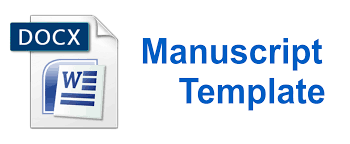Persepsi Guru Tentang Konsep Kurikkulum Merdeka Belajar Dalam Pendidikan Agama Islam di SMA Negeri 1 Padang Tualang
Keywords:
Teacher Perceptions, Free Learning Curriculum, Islamic Religious EducationAbstract
The research problem shows that educational facilities. Considering that facilities and infrastructure are one of the impact factors for the success of the teaching and learning process, the standards and use of learning facilities must be in accordance with the learning objectives. In independent learning, learning is inseparable from the facilities that support the learning process. Another problem is in the form of a curriculum that changes according to the times, so that the teacher returns from the beginning to re-understand the independent learning curriculum. This type of research uses a qualitative approach. The subjects of this study were Madrasah heads and Islamic religion teachers. Data collection methods by way of observation, interviews and documentation. The analysis technique goes through the stages of the process of collecting data, reducing data, presenting data and presenting conclusions. The results of the study show that the perceptions of Islamic religious teachers regarding the independent learning curriculum in Islamic religious education learning are that of educating students at SMA N 1 Padang Tualang who are intelligent and have the Pancasila profile character. As for efforts to improve education at SMA N 1 Padang Tualang through an independent learning curriculum, as follows: first, Faith, piety to God Almighty, and noble (religious morality, Bernega Morals, Personal Morals, Morals to humans, and Morals to Nature Second, global diversity, third, mutual cooperation, fourth, independence, fifth, critical reasoning, and sixth, creative
Downloads
References
Dewi. ( 2020). Dampak COVID-19 terhadap Implementasi Pembelajaran Daring . Edukatif : Jurnal Ilmu, Vol.2, No.7 Maret, hlm. 56-61. .
Junaidi, A. ( 2020). Panduan Penyusunan Kurikulum Pendidikan Tinggi Di Era Industri 4.0 Untuk Mendukung Merdeka Belajar-Kampus Merdeka. Jakarta: Kemendikbud.
Moleong, L. J. (2019). Metodologi Penelitian Kualitatif. Bandung: Remaja Rosdakarya.
Patton. (2019). Metode Penelitian Kualitatif. Jakarta: Rosdakarya.
Priyanto. (2011). Buku Pedoman Program Pengalaman Lapangan (PPL) STIP PGRI Sidoharjo. Surakarta: Yuma Pressindo.
Sherly, D. E. (2020). Merdeka belajar: kajian literatur. Jakarta: Prosiding, hlm. 183–192.
Sibagariang, M. (2021). Peran Guru Penggerak Dalam Pendidikan Merdeka Belajar Di Indonesia. Jurnal Dinamika Pendidikan, Vol. 14. No 2, hlm 88–99.
Sugiono. (2019). Metode Penelitian Pendidikan Pendekatan Kuantitatif, Kualitatif, dan R&D,. Bandung: Alfabeta .
Ikhsan, M. A., & Diyana, T. N. (2020). Pandemi Covid 19 Respon Muslim Dalam Kehidupan Sosial Keagamaan dan Pendidikan. Delta Pijar Khatulistiwa.
Wiguna, S. (2021). Pengaruh Home Visit Method Terhadap Hasil Belajar Luring di Masa Pandemi COVID-19 Pada Mata Pelajaran Al Qur’an Hadits (Studi Kasus Siswa Kelas VIII MTS Jam’iyah Mahmudiyah Tanjung Pura Langkat). Continuous Education: Journal of Science and Research, 2(1), 61–71. https://doi.org/10.51178/ce.v2i1.187







